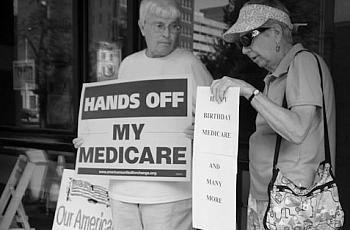
Trudy Lieberman
Contributing Editor

Contributing Editor
Trudy Lieberman, a journalist for more than 45 years, is a past president of the Association of Health Care Journalists and an adjunct professor of public health at the CUNY School of Public Health. She is a long-time contributor to the Columbia Journalism review where she blogs for CJR.org about media coverage of healthcare and retirement issues. She also blogs for Health News Review and writes a bi-monthly column, “Thinking About Health,” for the Rural Health News Service. She was a fellow at the Center for Advancing Health and regularly contributed to its Prepared Patient blog. She had a long career at Consumer Reports specializing in insurance, healthcare financing, and long-term care and began her career as a consumer writer for the Detroit Free Press. She has won 26 national and regional awards including two National Magazine Awards and has received five fellowships, including three Fulbright scholar and specialist awards. Ms. Lieberman is the author of five books including “Slanting the Story—the Forces That Shape the News,” and has served on the board of the Medicare Rights Center and the National Committee for Quality Assurance. She currently serves as a member of the National Advisory Committee for the California Health Benefits Review Program.

Herman’s dogged pursuit of the business practices of the nation’s hospitals and health care companies makes him a rare stand-out on a languishing beat.

Washington Post reporter Christopher Rowland is telling powerful narratives of older Americans who have been snared in our woefully deficient long-term care system.

Partisan newspapers have always been part of the American news landscape, but “there’s a huge difference between the partisan papers of 100 years ago and these news sites now."

A liberal version of the hyperpartisan press has emerged with the Courier Newsroom Network and the American Independent Media.

South Carolina officials told Brandie Makrin that something traumatic had to happen to her 21-year-old autistic son before he could get the help he needed.

The Inflation Reduction Act permits Medicare to negotiate drug prices. Here's why the legislation is such a big deal for seniors.

A bill expected to pass would prevent price gouging and limit how much older Americans must pay for medicine.

Why the media needs to cover what’s happening to the program with the same intensity reporters once covered the passage of the Affordable Care Act.

The push towards privatizing Medicare continues at the federal level, with the role of middlemen getting larger.

If it took this long to fix this financially punishing legislative "typo," what does that portend for larger health policy aspirations?